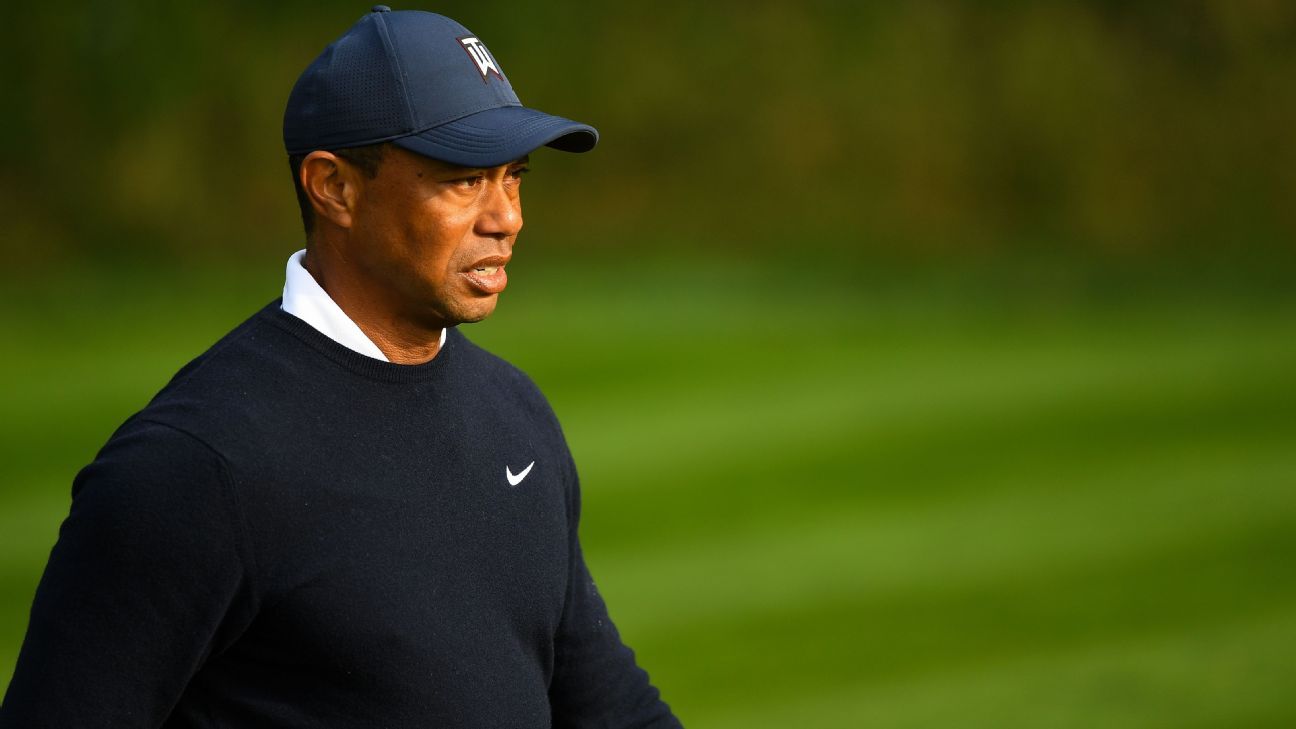Tiger Woods underwent surgery on Wednesday to address post-traumatic arthritis in his right ankle that was caused by injuries suffered in a February 2021 car wreck.
According to a statement posted to the 15-time major champion’s Twitter account, Dr. Martin O’Malley at HSS Sports Medicine Institute in New York performed the subtalar fusion procedure to address arthritis caused by a previous talus fracture and “determined the surgery to be successful.”
“He’s resting now and will start the recovery process,” Mark Steinberg, Woods’ agent at Excel Sports, told The Associated Press in a telephone interview.
The surgery took place in New York, and Steinberg said Woods has returned to his home near Jupiter, Florida, to begin rehabilitating.
As for when Woods could return to playing golf, Steinberg said there was “no timetable on this.”
“The first goal is to recover and lead a much more enjoyable day-to-day life,” Steinberg said.
The subtalar joint — often referred to as the hindfoot — is the articulation between the talus (main bone of the ankle) and the calcaneus (heel bone). It sits below the ankle joint and is primarily responsible for side-to-side motion. Because of that, pain at the subtalar joint will most often affect an athlete on uneven ground. In golf, for example, the more hills and unevenness in the course, the more problematic it can be.
A fusion is done specifically for the purpose of pain relief. Screws are placed across the joint for compression and stability, and the goal is for the two bones — in this case the talus and the calcaneus — to grow together as one so that there is no longer a “joint” and there is zero motion. What the athlete loses in motion, he gains in pain relief.
When joint pain is significant, it begins to interfere with normal motion as the athlete tries to avoid moving into the positions that exacerbate severe discomfort, often referred to as fear avoidance behavior. After a fusion, there might be some mobility restriction, but the fear of triggering severe pain with motion goes away.
In terms of the healing process, time is the primary element required to allow for full recovery. Typically, this means at least three months for a subtalar fusion to “take.” Approximately six weeks of non-weight-bearing is followed by several weeks of protected weight-bearing. Eventually, the athlete graduates to a shoe, possibly with supportive orthotics, then there is the challenge of returning to sport and eventual competition.
The procedure does carry a 90% success rate.
Woods has previously said his hope going forward would be to play in golf’s four major championships. There are three remaining this year — the PGA Championship (May 18-21), the U.S. Open (June 15-18) and The Open (July 20-23) — and given the usual recovery time for such a procedure, Wednesday’s surgery would suggest his 2023 season is likely done.
Earlier this month, Woods withdrew from the Masters before play resumed in a weather-delayed third round. In a statement posted to his Twitter account, Woods said he aggravated a previous plantar fasciitis injury in his right foot — the same injury that caused the five-time Masters champion to withdraw from the Hero World Challenge, an unofficial event he hosts in the Bahamas, in February.
Woods, 47, was limping badly as he played many of the first eight holes of the third round in a downpour. Woods was 6 over through his first seven completed holes of the third round. He was 9 over through 43 holes, which was worst among the 54 players who made the 36-hole cut.
It was the second time in the past year that Woods had withdrawn from a major championship because of injury. In May, he pulled out of the PGA Championship at Southern Hills Country Club in Tulsa, Oklahoma, after posting his worst score in the event, a 9-over 79, in the third round.
Woods suffered serious injuries to his right leg, foot and ankle early in 2021 when his SUV rolled over in a wreck outside Los Angeles. According to Woods, surgeons told him they nearly had to amputate his right leg.
He returned to competitive golf last year at the Masters after a 508-day layoff. He posted consecutive scores of 6-over 78 in each of his last two rounds, his worst scores at the event.
ESPN’s Stephania Bell and The Associated Press contributed to this report.
